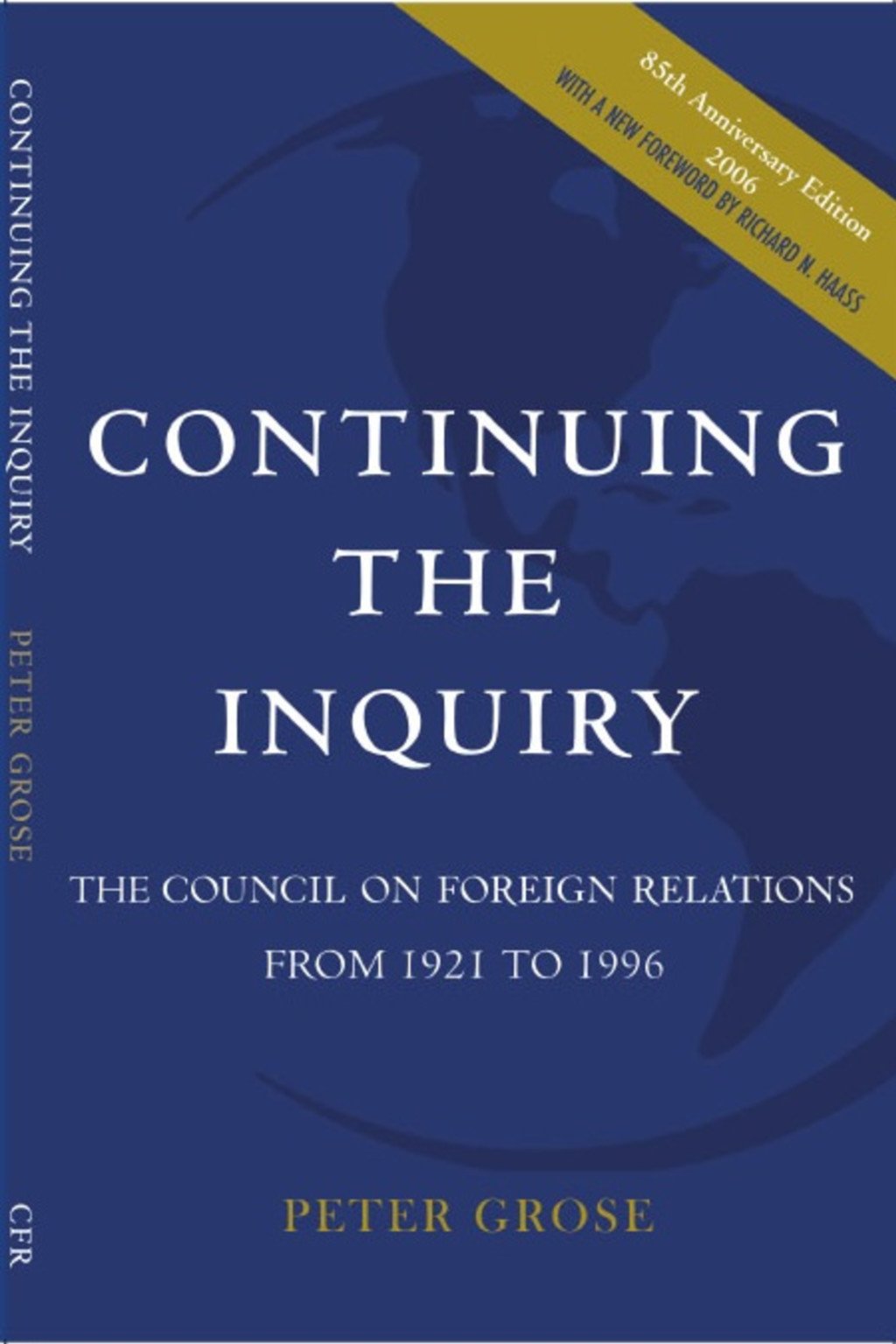Continuing the Inquiry
The Council on Foreign Relations from 1921 to 1996

- Publisher
- Council on Foreign Relations Press
- Release Date
- September 2006
- Pages
- 82
- ISBN
- 0876091923
Reprinted with a new Foreword by Richard N. Haass in honor of the Council’s eighty-fifth anniversary
Direct heir to the academic think tank called “The Inquiry” that prepared Woodrow Wilson for the Paris Peace Conference in 1919, the Council on Foreign Relations has filled a unique and sometimes controversial place in America’s history.
Nonpartisan and private, the New York–based CFR has been called an “incubator of ideas.” From its book-lined meeting rooms, the pages of its journal Foreign Affairs, and its many books and other publications have come much of the most important thinking about U.S. foreign policy, from the isolationist era of the 1920s, through World War II and the Cold War—and now into the twenty-first century.
Peter Grose‘s fresh and informal history reflects the diverse voices of CFR members, with influence in both political parties, in all administrations since Wilson’s, and on competing sides of most important issues. Richly illustrated with photographs and cartoons, and reprinted with a new foreword by CFR President Richard N. Haass in honor of CFR’s eighty-fifth anniversary, this book reveals a group of men and women engaged in spirited and informed debate on the foreign policy problems of the day and devoted to the ideal of nonpartisanship set out by CFR’s founders.
A Council on Foreign Relations Book